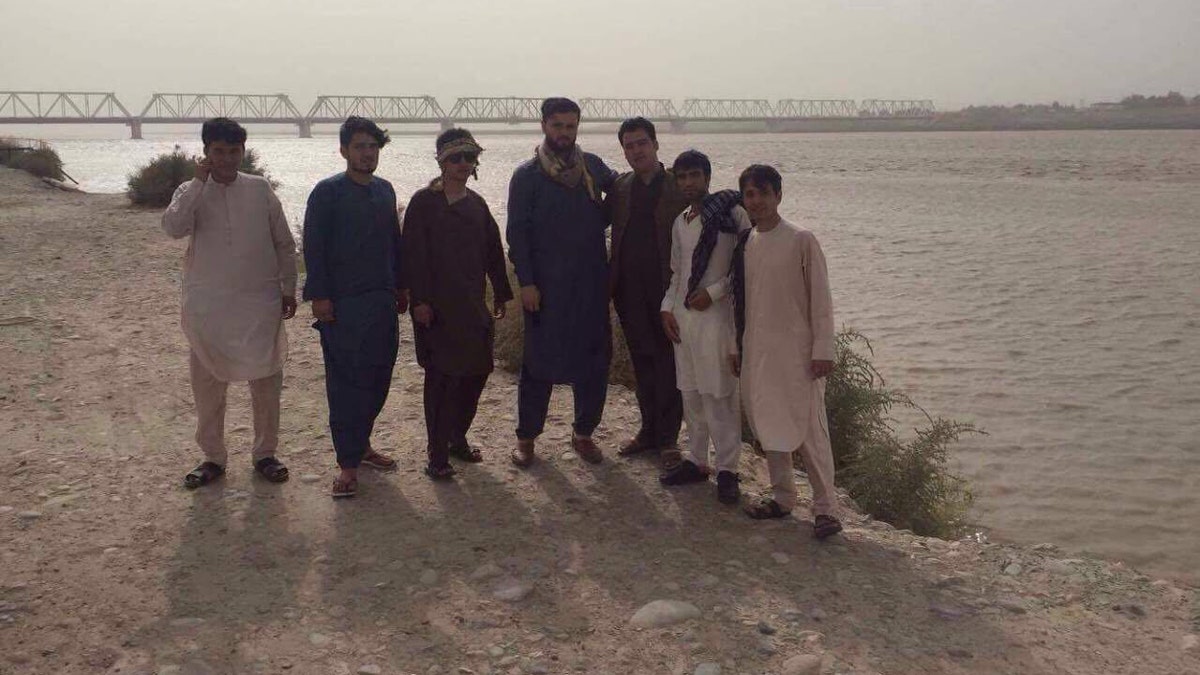US accuses Russia of propping up Taliban in Afghanistan
Rich Edson reports from the State Department
KABUL, Afghanistan – Afghanistan villagers caught in Taliban territory in the northern province of Kunduz, by the border of Tajikistan, recently began reporting unmarked helicopters at night landing and leaving quickly from known Taliban hideouts, or at least areas outside of government control.
Others spoke of smugglers bringing in shipments of small boats across the quiet river, called Panj on the Tajikistan side and Amu on the Afghanistan, between the two countries.
It didn't take long before suspicions arose of an international outfit at play. The locals feared going close to the tightly controlled Taliban enclaves to investigate. Around the same time, reports from the U.S. started growing that Russia was once again meddling in Afghanistan -- this time by arming the Taliban.
"I believe what Russia is attempting to do is they are attempting to be an influential party in this part of the world," Gen. Joseph Votel, chief of U.S. Central Command, told American lawmakers in March. "I think it is fair to assume they may be providing some sort of support to [the Taliban] in terms of weapons or other things that may be there."
The recent onslaught of the Taliban into the north of Afghanistan -- once a relatively stable place compared to the insurgency-saturated southern and eastern areas -- can be partly attributed, say many experts and officials, to Russian involvement.
"The success of the Taliban in the north is due to Russian support. In Kunduz province, 30 miles from the Afghanistan-Tajikistan border, Taliban has control," Kabul-based analyst Silab Mangal told Fox News. "That's where they get Russian finance and logistics and their wounded fighters can get treatment."

According to Mangal, who cites personal engagement with Taliban in those areas, the Russians have given them weapons over time, including the Dragnov sniper rifle and the PTRS-41 anti-tank rifle.
Getting in such weapons or advisers smoothly, by air or land, is a hypothetically straight-forward task. Tajikistan shares a zig-zag 750-mile border with northern Afghanistan, and Russia’s largest foreign military installation, Russia’s 201st Rifle Division, is located just across the border.
"Russia has a lot of influences with all the tribes here on the border. They know all the local commanders," one Afghan official, who previously operated in the Panj region and had direct ties to Moscow, said. "In just a few minutes, helicopters can go and come back without too much notice. And boats attract little attention."
Another well-placed intelligence source, who also requested anonymity due to safety concerns in the Taliban-infested region, told Fox News that the mysterious weapons transfers -- coming from abroad -- are in due course empowering the Taliban to maintain a strong foothold in the north of Afghanistan.
According to the source, Russia tightened engagement with the Taliban during the second term of former President Hamid Karzai, around 2009, as his ties with the U.S. deteriorated. But mysterious deliveries allegedly started just prior to the first fall of Kunduz city in 2015. Although seemingly random, they have become more frequent in the past eight months.
Moscow has openly stated that it has an intelligence-sharing relationship with the Taliban regarding the ISIS threat. But they have staunchly denied that the Russian military is aiding or arming the Taliban. Taliban spokesperson Zabiullah Mujahid also denied any Russian monetary or material assistance.
The success of the Taliban in the north [of Afghanistan] is due to Russian support.
Sanjar Sohail, a prominent investigative journalist and publisher of a Farsi-language newspaper, has confirmed that Taliban insurgents in that area have new Russian Kalashnikovs, while previously they only had old Soviet-style guns from the invasion time.
"We know the weapons market in Afghanistan," Sohail said. "This is a new supply."
On Wednesday, the police chief of the northern province of Baghlan, Brig. Gen. Ikramuddin Sarai, told Pajhwok Afghan News that Russian and other foreign military advisers had arrived to support the Taliban amid heavy clashes. Similar reports surfaced last month in the southern province of Uruzgan, in which police chief Ghulam Farooq Sangari told Voice of America's Afghan service that advisers -- including two women dressed in doctor's uniforms and guarded by four armed Taliban along with an Afghan translator -- were in various locations. The accusation was denied by Russian officials.
However, another senior Afghan government security official told Fox News that they have solid, although classified, documents indicating Russia is supporting the Taliban through its ally Iran, under the rationale that they are trying to bring the terrorist group to the negotiating table to form a peace treaty similar to the one recently signed by militant group Hezb-e-Islami.
"Iran -- a Shia country -- has its advisers in the north," an intelligence source told Fox News. "The small pockets of Shia in Afghanistan used to get attacked by the Taliban; now they are not harming them or forcing them to pay taxes."
Furthermore, U.S. intelligence also has determined that Russian weapons were used by the Taliban to attack U.S.-supported Afghan soldiers in southern Helmand, Kandahar and Uruzgan provinces. In a briefing to Congress in December, the top U.S. commander in Afghanistan, Gen. John Nicholson, also accused Iran of backing the Taliban.









































